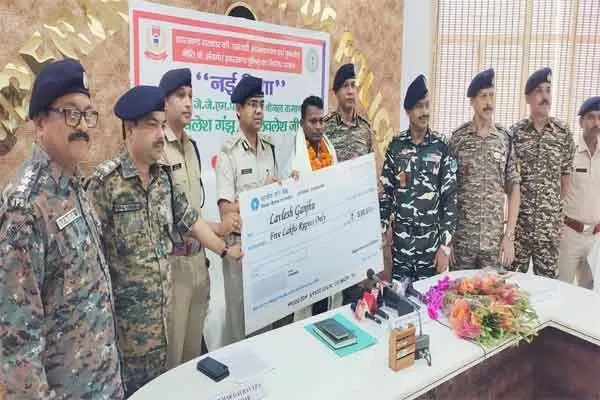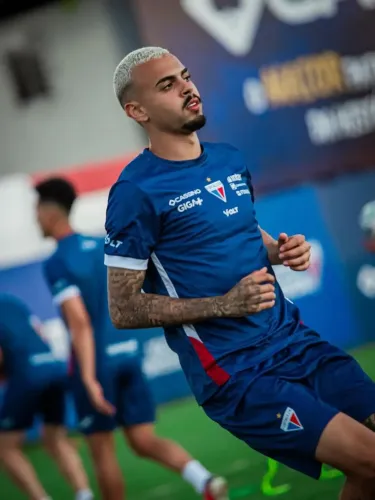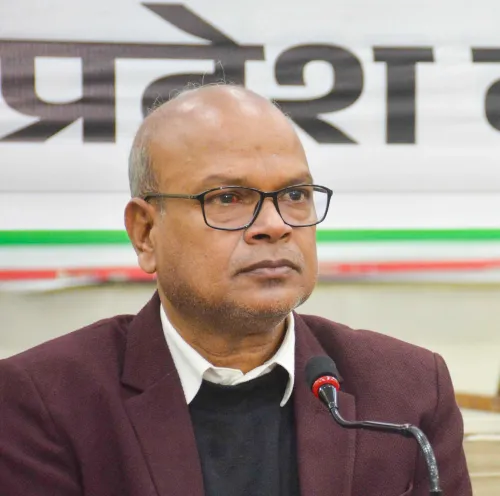Why Did Top Maoist Leader With Rs 5 Lakh Reward Surrender in Jharkhand's Latehar?

Synopsis
Key Takeaways
- Lovelesh Ganjhu surrendered to police, marking a significant setback for JJMP.
- He had been evading capture for years due to changing locations.
- Joint operations by police and CRPF pressured him to surrender.
- Ganjhu's surrender indicates a trend of weakening militant groups in the region.
- Authorities are offering rehabilitation to those who choose to surrender.
Latehar (Jharkhand), July 15 (NationPress) Lovelesh Ganjhu, a senior figure in the outlawed Maoist group Jharkhand Janmukti Parishad (JJMP), voluntarily surrendered to the Latehar police on Tuesday, as confirmed by officials. Ganjhu, who had a bounty of Rs 5 lakh on his head, laid down his weapons in front of Palamu Zonal Inspector General Sunil Bhaskar, Latehar SP Kumar Gaurav, and high-ranking officers from the Central Reserve Police Force (CRPF).
For several years, Ganjhu was deeply involved in Maoist activities throughout Latehar and neighboring areas, being wanted for various serious offenses such as extortion, violence, and attacks on security personnel.
Despite numerous efforts, law enforcement struggled to apprehend him due to his frequent relocations and use of decoys to evade capture.
Officials noted that relentless pressure from joint operations by state police and the CRPF ultimately led to Ganjhu's downfall.
Investigations indicated that he had acquired vehicles under false identities to avoid being tracked. Nonetheless, financial issues, the diminishing strength of his organization, and the loss of key leaders compelled him to surrender.
Previously, on June 18, another JJMP area commander, Baijnath Singh, surrendered similarly in the presence of DIG Naushad Alam, SP Kumar Gaurav, and CRPF Commandant Rakesh Kumar. Singh, a longtime member of the group, hailed from Shaildag village in the Manika police jurisdiction.
In recent months, security forces have ramped up operations, resulting in the deaths of several notable Maoist leaders. Most notably, the JJMP's top leader, Pappu Lohara, was killed in an encounter two months ago. With his demise, Ganjhu was perceived as the last significant leader of the JJMP still in the field.
His surrender represents a significant setback for the already weakened militant organization.
In recent times, other individuals such as Amarjeet Brijia and Mithlesh Korba, both from Balrampur district in Chhattisgarh, also surrendered to the Latehar police and CRPF officials.
The police have stated that those who surrender will receive rehabilitation and support according to established protocols. Simultaneously, they issued a stern warning to remaining insurgents: surrender willingly or prepare to face consequences.










